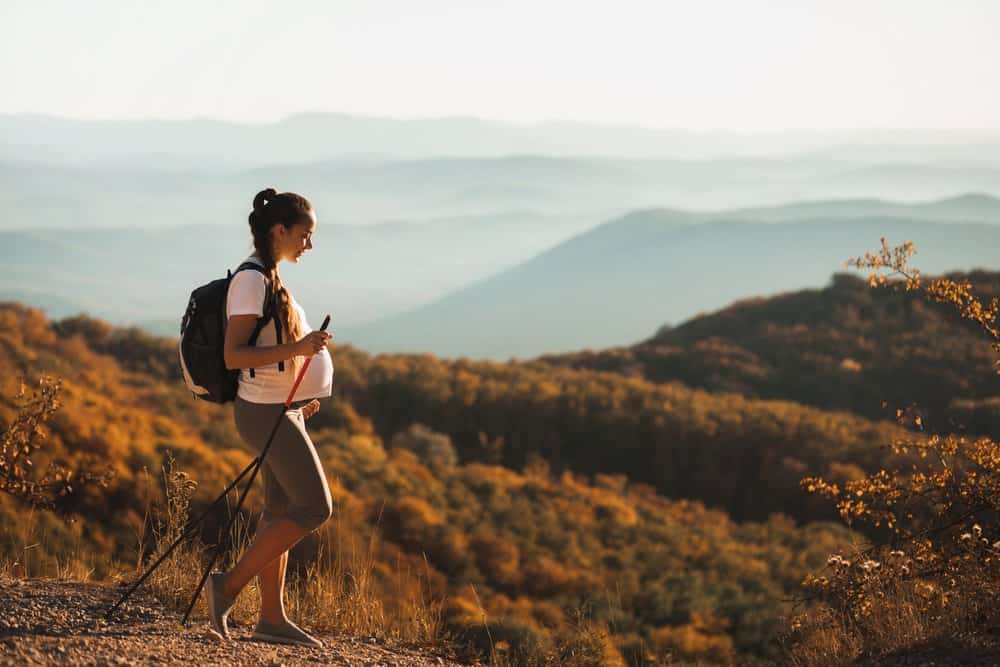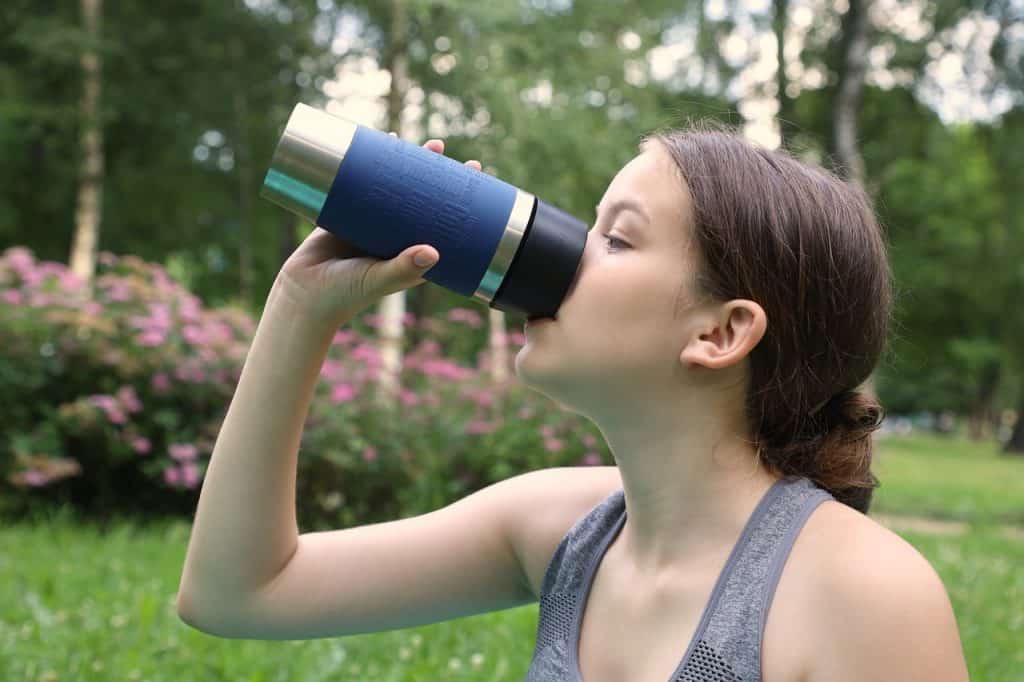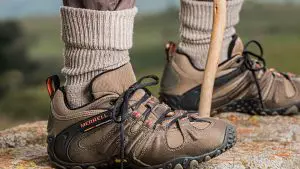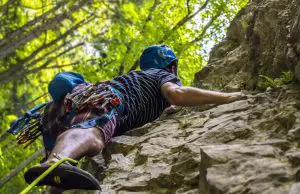Is It Safe to Hike While Pregnant? (8 Important Tips)

Nine months is a long time. For some of us, it seems like an eternity. And when you’re pregnant, those nine months can feel even longer. So it’s no surprise that many pregnant women start to go stir-crazy and look for ways to get out and move around.
One popular outlet is hiking. But before you lace up your hiking boots, there’s one important question you need to ask yourself: is it safe to hike while pregnant?
Quick Links
Consult with Your Doctor First
The answer to this question is, unfortunately, not a simple one. There is no easy yes or no answer. The truth is, it depends on several factors specific to your individual pregnancy. So the best thing you can do if you’re thinking about hiking while pregnant is to consult with your doctor first. They will be able to help you weigh the risks and benefits of hiking and give you specific advice on whether or not it’s safe for you to hit the trails in the first place.
For example, if you’re at high risk due to a complicated pregnancy or even something you suffer from BEFORE pregnancy, your doctor may advise you to avoid hiking altogether. But if you’re low-risk and have a healthy pregnancy, they may give you the green light to go ahead and enjoy the great outdoors.
Is It Safe to Hike While Pregnant at High Altitudes?
Another critical factor to consider is altitude. If you’re planning on hiking at high altitudes, it’s even more important that you consult with your doctor first. That’s because pregnant women are more susceptible to altitude sickness. So if you’re planning on doing any hiking above 8,000 feet, make sure you talk to your doctor about it first.
What Are the Dangers of Altitude Sickness from Hiking While Pregnant?
Altitude sickness while hiking can cause many problems, both for you and your baby. Some of the most common symptoms include headache, nausea, vomiting, shortness of breath, and dizziness. In some cases, altitude sickness can be severe enough to require hospitalization.
The amount of oxygen in the air decreases as you climb in altitude, which means less oxygen is getting to your baby. This can lead to a condition called hypoxia, which can cause severe problems for your baby, including developmental delays, cognitive impairment, and low birth weight.
So if you’re planning on hiking at high altitudes while pregnant, it’s essential to be aware of the risks and take steps to prevent altitude sickness.
Choose a Moderate Hike with A Low Altitude
One of the best things you can do to reduce the risks and make it safe to hike while pregnant is to choose a moderate hike with a low altitude. Avoid any hikes that are too strenuous or that take you to high altitudes. Stick to trails that are well-maintained and easy to navigate. And make sure you take plenty of breaks along the way to rest and recharge.
This isn’t the time to challenge yourself with an epic hike. Instead, take it easy and let your body take the lead. You’ll be able to enjoy the hike more, and you’ll be less likely to experience any problems along the way.
How Far Can You Hike While Pregnant?
Again, this question really depends on your specific experience, your pregnancy, and your doctor’s advice. If you’re new to hiking, you might want to start with shorter hikes and work up to longer ones.
For a beginner, I would suggest 1 to 2 miles to start and keep track of how you feel afterward. If you feel good, you can try a longer hike next time. But if you’re tired or sore afterward, then 1 to 2 miles is probably a good distance for you.
And if you’ve been hiking throughout your pregnancy, you can probably continue doing so as long as you feel comfortable – up until about 35 weeks. To be safe, I would call it quits on any activity that can be strenuous after this point.
As your pregnancy progresses, you might find that you need to take more breaks or reduce the length of your hikes, anyways. And that’s totally normal! Pregnancy is an amazing time, but it’s also a time when you need to listen to your body and take things a little slower.
Wear the Right Gear
When you’re pregnant, it’s important to dress for comfort and safety. That means wearing clothes that are loose-fitting and breathable.
It’s also a good idea to wear a good sun hat and sunscreen to protect your skin from the sun’s rays. As for sunscreen, I recommend the Sun Bum Moisturizing SPF Sunscreen.
It’s also important to note that being out in the blistering sun for too long can be dangerous for everyone, not just pregnant women.
And don’t forget about shoes. Make sure you wear shoes that are supportive and have good traction. This is especially important if you’re hiking on uneven terrain or in wet conditions. A great pair of hiking boots can go a long way. I recommend the Moab Hiking Boots by Merrell. They are incredibly comfortable, waterproof, and have great traction – which is a necessity if you’re gonna be doing a lot of walking while pregnant.
Lastly, use trekking poles. Trekking poles can be incredibly helpful for keeping balance and preventing falls, which is especially important to protect your beautiful baby bump!

Take Precautions Against Dehydration and Hunger
Dehydration is another risk you need to be aware of when hiking while pregnant. Make sure you drink plenty of water before, during, and after your hike. Carry a water bottle with you and take regular breaks to drink. And if you start to feel thirsty or dizzy, stop hiking and drink some water.
Dehydration can cause several problems, including premature labor, low birth weight, and developmental delays. So it’s important to take steps to prevent it.
Secondly, depending on which stage of your pregnancy you’re in, you might need to eat more frequently than usual. So make sure you have snacks with you to keep your energy up. If you start to feel lightheaded or weak, stop hiking, grab your granola bar, and much away.
Plan Your Bathroom Breaks
Having to pee often is another common symptom of pregnancy. And when you’re hiking, sweating, and downing jugs of water, it can be even more frequent. So make sure you plan your hikes with plenty of stops for bathroom breaks. And if you start to feel the urge to go, don’t wait. Find a safe place to stop and take a break if possible.
During my second and third trimesters, I made sure to always have a portable potty with me when hiking. That way, if I couldn’t make it to a toilet in time, I had a backup plan. Something like this Unisex Potty Urinal can work really well.
Don’t Hike Alone
It’s always a good idea to hike with a buddy, but it’s especially important when you’re pregnant. If something happens and you need help, it’s good to have someone there with you. Hiking while pregnant probably isn’t the time to discover the joys of solo hiking.
So if possible, find a hiking partner or join a hiking group. This way, you can enjoy the companionship and support of others while you’re out on the trails.
Plus, it’s always more fun to hike with someone else!
Listen to Your Body
Finally, it’s essential to listen to your body when hiking while pregnant. If you start to feel fatigued or uncomfortable, take a break. And if you experience any pain, nausea, or bleeding, definitely stop hiking and call your doctor right away.
These are all signs that something could be wrong, and you may need to seek medical attention. So please don’t be afraid to take it slow and take breaks when you need to.
Conclusion
Hiking while pregnant can be a great way to get some exercise and fresh air. But it’s important to take some precautions to ensure a safe and enjoyable experience. If you have any doubts about whether or not you should be hiking, consult your doctor first.
By following these tips, you can reduce the risks and enjoy the trails with peace of mind. Happy pregnant hiking!







